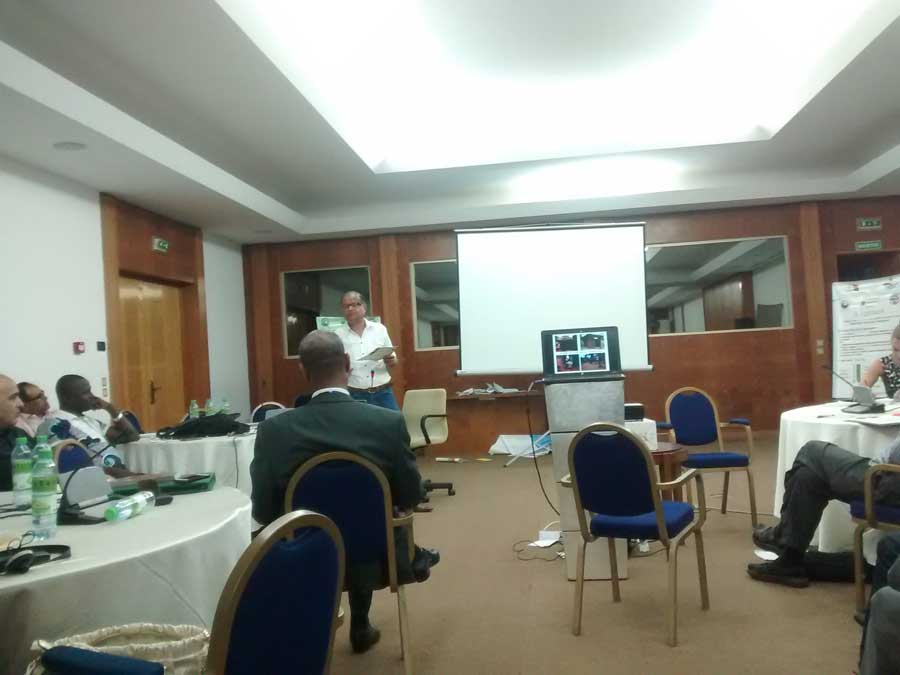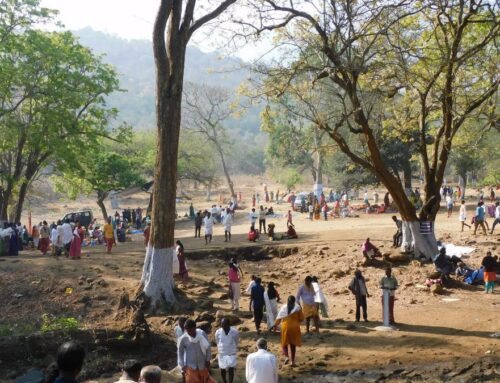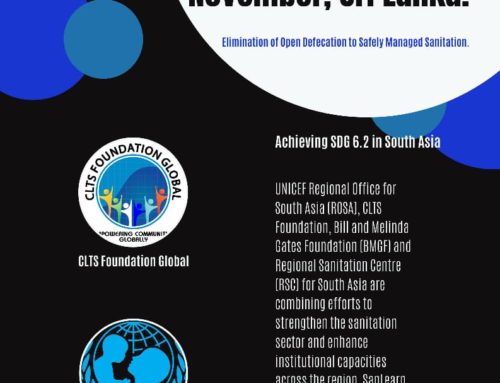
Dr Kamal Kar addresses the participants
On 26th May, 2015, Global Sanitation Fund (GSF) organized a learning and sharing event, ‘Sanitation as a movement – Roadmaps to ODF nations’, which focused on Francophone countries in Africa. The purpose of the session was to showcase a south-south learning exchange mechanism on large-scale behaviour change for CLTS knowledge and implementation in Francophone Africa. This event showcased how Benin, Madagascar and Togo mobilize support, develop and implement their ODF roadmaps.

CLTS champion Dr. Josea Ratsirarson, Country Representative, MCDI, Madagasacar
From Madagascar, Dr. Josea Ratsirarson, Country Representative, Medical Care Development International ( MCDI), Madagasacar spoke about the scaling up of CLTS in Madagascar. He said that at present Madagascar has more than 11,000 ODF villages and through participatory methods communities across the country have come up with 65 triggering tools. He also explained the MANDONA* model , which is a follow-up approach inspired by CLTS triggering tools. It is action-oriented and aims to encourage communities to take immediate action to rectify anomalies and drive the community towards ODF status.
According to him, one of the most powerful innovations that has come up in his country is ‘Institutional triggering’. He said that Dr Kamal Kar demonstrated this approach by motivating key and influential players in Madagascar to take action within their scope of influence – whether it is at the country level, or within the region, district, parish or community. He said that as an outcome, this year the President of Madagascar has signed a National Roadmap to make the country ODF by 2018.
Fataou Salami, WASH Specialist, UNICEF a long time champion of the CLTS approach in West Africa, shared his experiences from Togo. He said that Togo was making slow progress in increasing access to sanitation, so a delegation from Togo visited Madagascar in 2013 to learn from the FAA programme. Now, Togo has started implementing a dynamic monitoring mechanism and they are also trying to implement institutional triggering approach with the top leadership. Salami also expressed the need for a Francophone Network in Africa for learning and sharing which would include countries such as, Benin, Burkina-Faso, Chad, Madagascar, Togo, and others.

Participants of the session
Achille Kangni from the Ministry of Health, Benin said that they were still grappling with subsidies when the GSF programme was launched in the country. He said that although CLTS was introduced in 2009, till early 2014, Benin did not have a single ODF village, but after Dr Kamal Kar’s training in 2014, they saw tremendous results. He said that now, there are an immense number of interventions from donors in Benin and their scope of work is clearly defined to ensure harmonization of approaches.
In his concluding remarks, Dr Kamal Kar said that in the past few years he has observed two majors shift in Africa: The first is the initiative of government bodies to pitch in funds for their sanitation programmes, instead of waiting for external funding and the second is engaging the top leadership of a country to scale up sanitation programmes. In this context, he gave the examples of the First Lady of Malawi, Her Excellency Gertrude Maseko Mutharika, and the First Lady of Madagascar, Her Excellency Voahangy Rajaonarimampianina, who had signed a declaration on sanitation and hygiene launched by the Global Poverty Project during the World Earth Day in April.




Leave A Comment